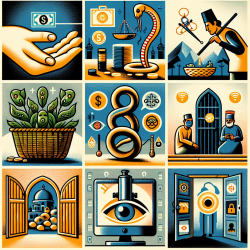As practitioners in the field of online therapy and special education, we are constantly seeking ways to improve our services and make them more accessible to those who need them. A recent study titled Barriers to the hospital treatment among Bede snake charmers in Bangladesh with special reference to venomous snakebite offers valuable insights that can help us enhance our practices. The research identifies four critical barriers to healthcare—Accessibility, Affordability, Availability, and Acceptability (the 4As)—which resonate deeply with challenges faced in our field as well.
Here are some actionable takeaways from the study that can help us improve our online therapy services:
- Accessibility: Just as the Bede community faces geographic challenges in accessing hospitals, many students and families struggle to access therapy services due to location or technology barriers. Consider offering mobile-friendly platforms, offline resources, and user-friendly interfaces to ensure that your services are accessible to everyone.
- Affordability: The cost of treatment is a significant barrier for the Bede community. Similarly, the cost of therapy services can be prohibitive for some families. Offering sliding scale fees, payment plans, or even pro bono services can make a significant difference.
- Availability: The lack of available antivenom in hospitals mirrors the shortage of qualified therapists in some areas. Investing in training programs and certifications for more practitioners can help bridge this gap. Additionally, utilizing teletherapy can make specialized services available to a broader audience.
- Acceptability: Cultural stigma and discrimination prevent the Bede from seeking biomedical treatment. In our context, this could translate to the stigma around mental health or special education needs. Creating an inclusive and non-judgmental environment is crucial for encouraging more people to seek help.
By addressing these barriers, we can make our therapy services more effective and inclusive. The Bede community's reliance on traditional healers due to these barriers highlights the importance of building trust and understanding cultural contexts. Collaborating with local communities and leaders can also help in making our services more acceptable and trusted.
Encouraging further research and staying updated with studies like this can provide us with the tools and knowledge needed to continuously improve our services. Understanding the broader context of healthcare barriers can offer new perspectives and innovative solutions that we can apply in our practice.
To read the original research paper, please follow this link: Barriers to the hospital treatment among Bede snake charmers in Bangladesh with special reference to venomous snakebite.










